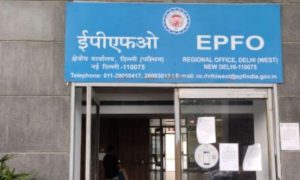In February, the Supreme Court had struck down the Electoral Bonds Scheme which allowed for anonymous funding to political parties.
The Supreme Court on Friday junked a batch of petitions seeking a probe by a special investigation team (SIT) under judicial supervision into an alleged scam in electoral financing using electoral bonds (EBs).
“Individual grievances regarding presence of quid pro quo would have to be pursued on the basis of remedies available under the law. Where there is a refusal to investigate or closure report has been filed, appropriate remedies can be taken under law governing criminal procedure or as the case may be under Article 226,” Chief Justice of India DY Chandrachud said.
A public interest litigation (PIL) filed by two non-governmental organisations (NGO) alleged an “apparent quid pro quo” between political parties, corporations, and investigative agencies.
The scheme, intended to provide transparency in political funding, has been described as a “scam” with possible implications of corruption involving political parties, corporations, and investigative agencies.
The petition has also sought a direction to the authorities to recover the money donated by companies as part of “quid pro quo arrangements where these are found to be proceeds of crime”.
Earlier in February this year, a five-judge Constitution bench scrapped the electoral bonds scheme, introduced by the BJP government as an alternative to cash donations to political parties.
Following the top court’s judgement, the State Bank of India, the authorised financial institution under the scheme, had shared the data with the Election Commission, which later made it public.
The electoral bonds scheme, which was notified by the government on January 2, 2018, was pitched as an alternative to cash donations made to political parties as part of its efforts to bring in transparency in political funding.





































